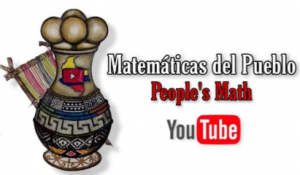Exitosa defensa doctoral de Aldo Iván Parra en la Universidad de Aalborg, Dinamarca
 El pasado 26 de agosto de 2018, Aldo Iván Parra Sánchez realizó, en la Universidad de Aalborg, Dinamarca, de manera exitosa la defensa de su tesis Doctoral titulada «Curupira’s Walk: Prowling Ethnomathematics Theory Through Decoloniality«, bajo la dirección de la Doctora Paola Valero.
El pasado 26 de agosto de 2018, Aldo Iván Parra Sánchez realizó, en la Universidad de Aalborg, Dinamarca, de manera exitosa la defensa de su tesis Doctoral titulada «Curupira’s Walk: Prowling Ethnomathematics Theory Through Decoloniality«, bajo la dirección de la Doctora Paola Valero.
La Red Latinoamericana de Etnomatemática felicita al Doctor Parra por este importante logro académico y a su directora.
Resumen
«This thesis adopts a decolonial standpoint to introduce a new theoretical frame- work for ethnomathematics. There is an emerging trend in ethnomathematics, that considers challenges posed by socio-political movements worldwide. That trend deserves a solid foundation and this thesis is aiming to provide it. The proposed framework calls into question the current theorization (and critique) of ethnomathematics, by claiming a performative, non-essentialist, and interac- tional approach that assumes the inseparability of socio-political concerns and philosophical questions within the field.
In order to argue for the robustness and contributions of the proposed theorisation, the thesis elaborates further some of the well-established de- bates on ethnomathematics: the problem of representation in the relation re- searcher/researched, the coherence of methods employed in research, the sen- sitivity towards predicaments of Indigenous education, the challenges of mul- tilingualism and linguistic diversity, the political  consequences of ethnomath- ematical research, and the positioning of ethnomathematics on the nature of mathematics.
consequences of ethnomath- ematical research, and the positioning of ethnomathematics on the nature of mathematics.
The thesis works theory in a twofold way: one that develops theory as a structure defining objects and procedures of interest for the field; and other way that introduces and refines analytical notions that function as a toolbox for practice. In the first sense, a theory of interactions and relations among cultures and mathematics is produced. In the second sense, two original theoretical notions that can guide the practice of the working ethnomathematicians are proposed: symmetry and barter. Other notions coming from decolonial studies are adapted and reworked for the specificity of ethnomathematics: locus of enunciation, intellectual property, and propio.
As an article-based thesis, it is structured with one introduction, seven chapters containing independent articles, and a conclusion. The introduction states the research questions on the need of new theorisations that can comprise jointly political and philosophical concerns on the foundation of ethnomathe- matics. The seven chapters are devoted to explain how particular problems of ethnomathematics theory and practice can be addressed under new per- spectives that (dis)solve the tensions that framed the debates until now. The conclusion shows how those perspectives can be articulated within a decolonial approach.
As a result of the investigation, it is argued that a decolonial, performative, non-essentialist, and interactional approach has the potential of providing a robust foundation for the current practices of etnomathematics. It also allows introducing new concerns, scenarios and actors that can lead the theory and practice of ethnomathematics into a new era».




